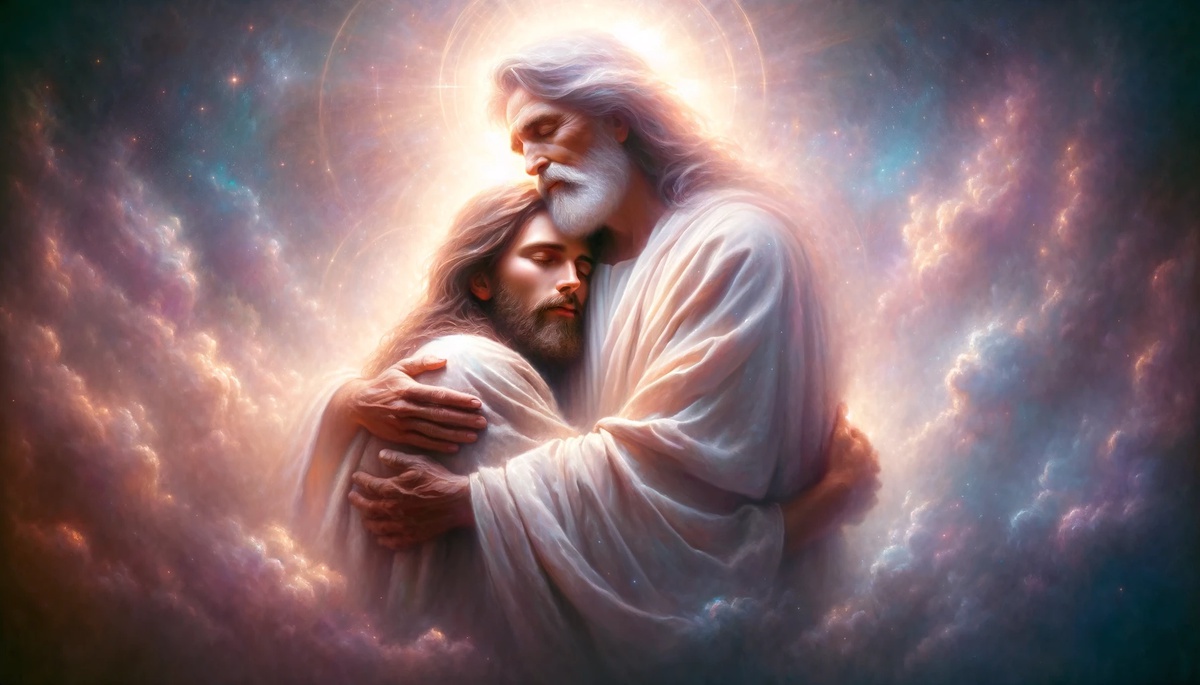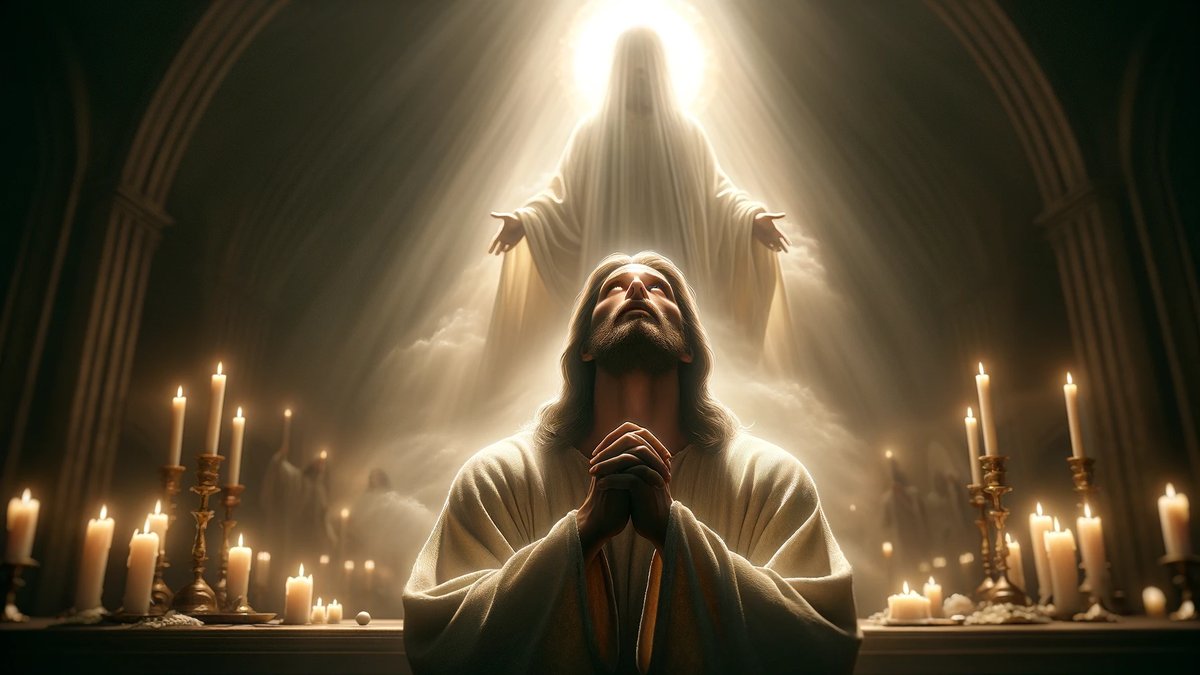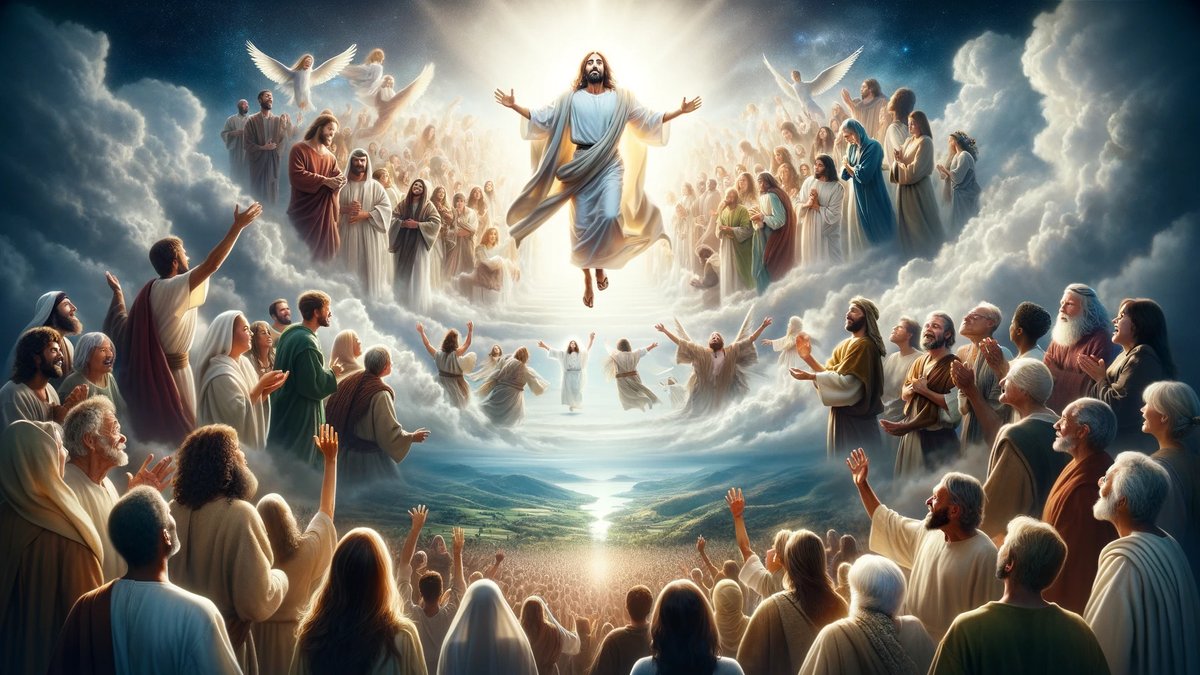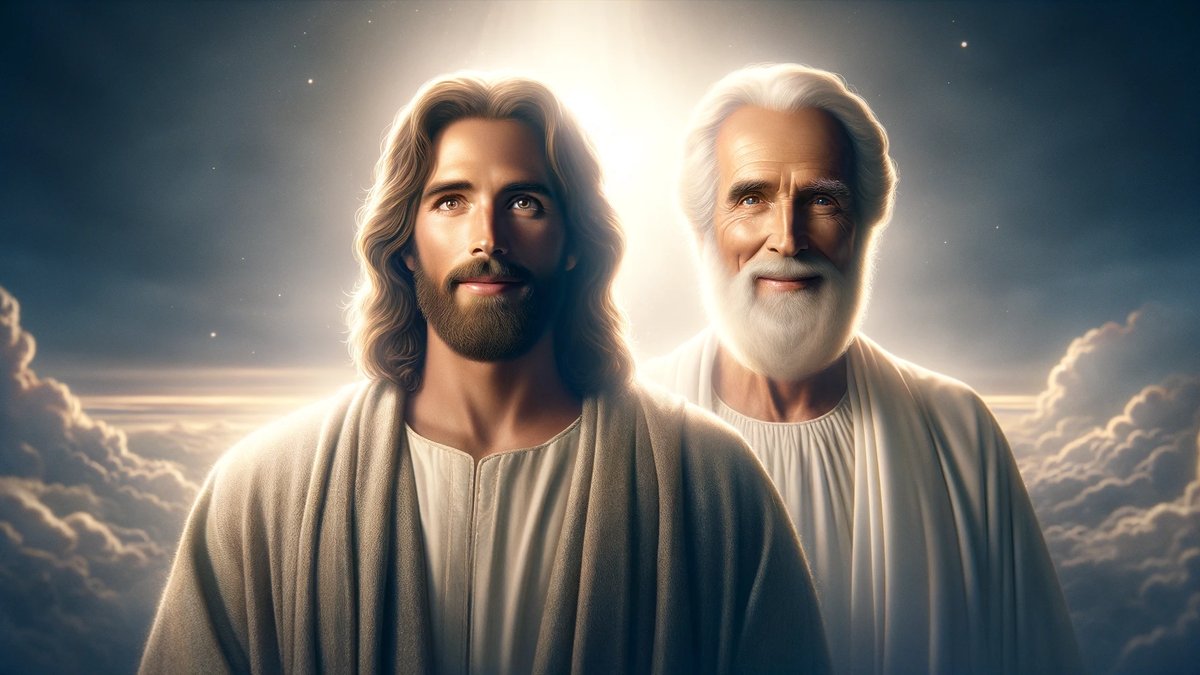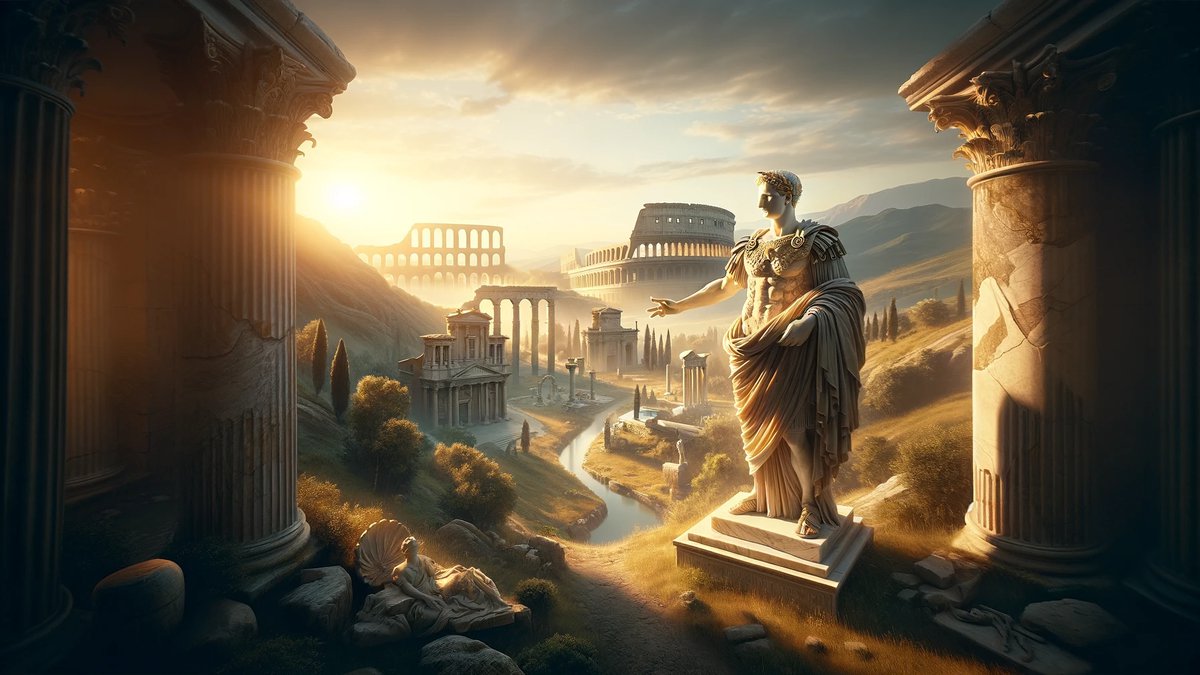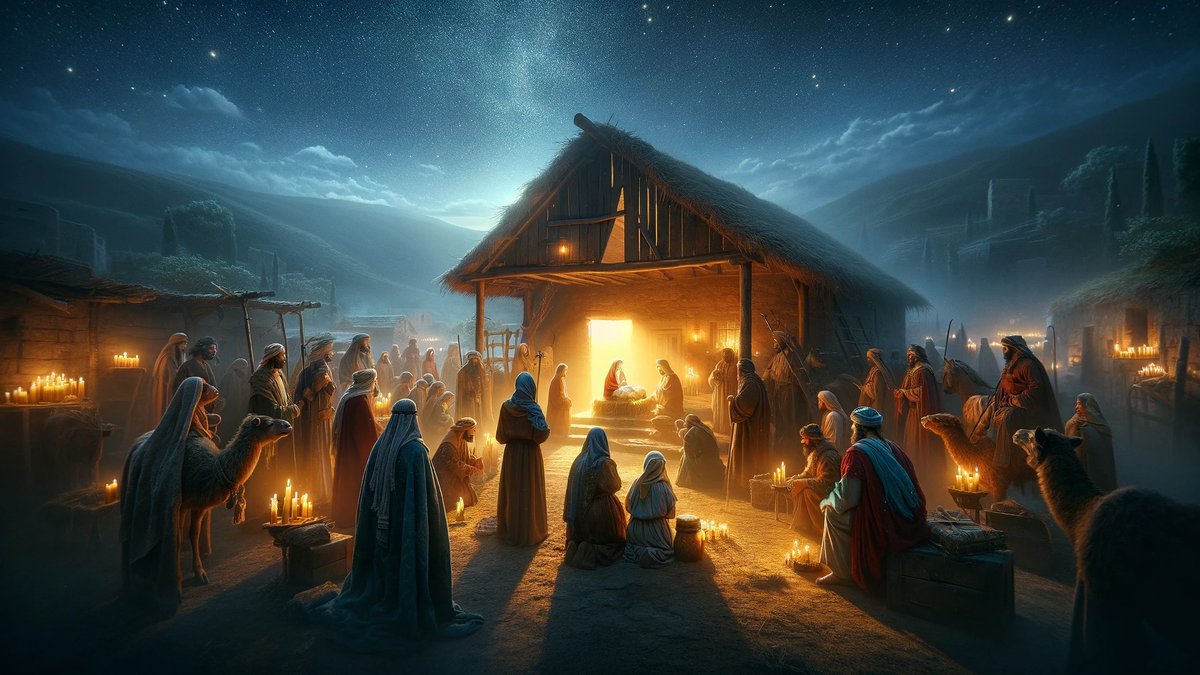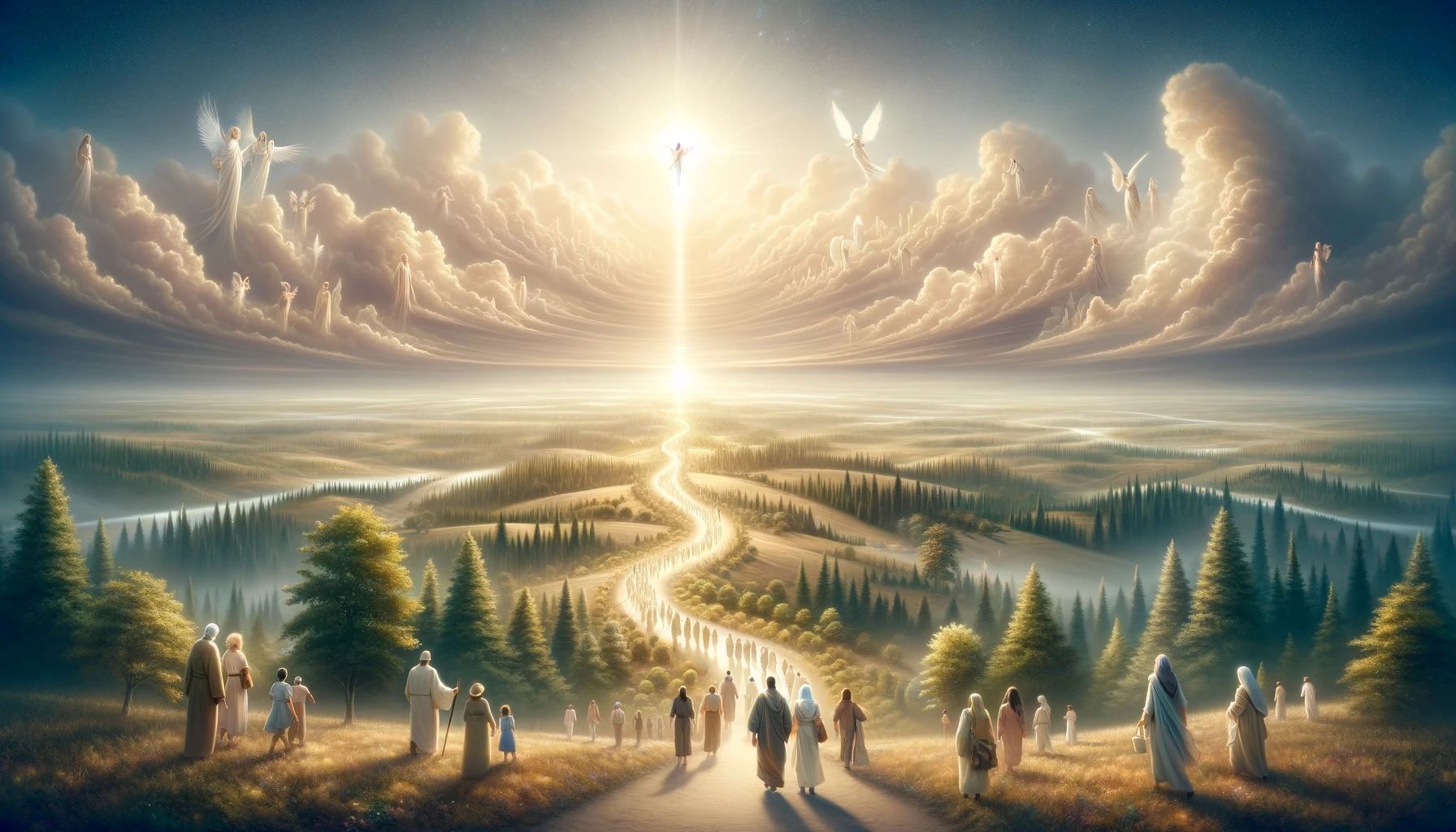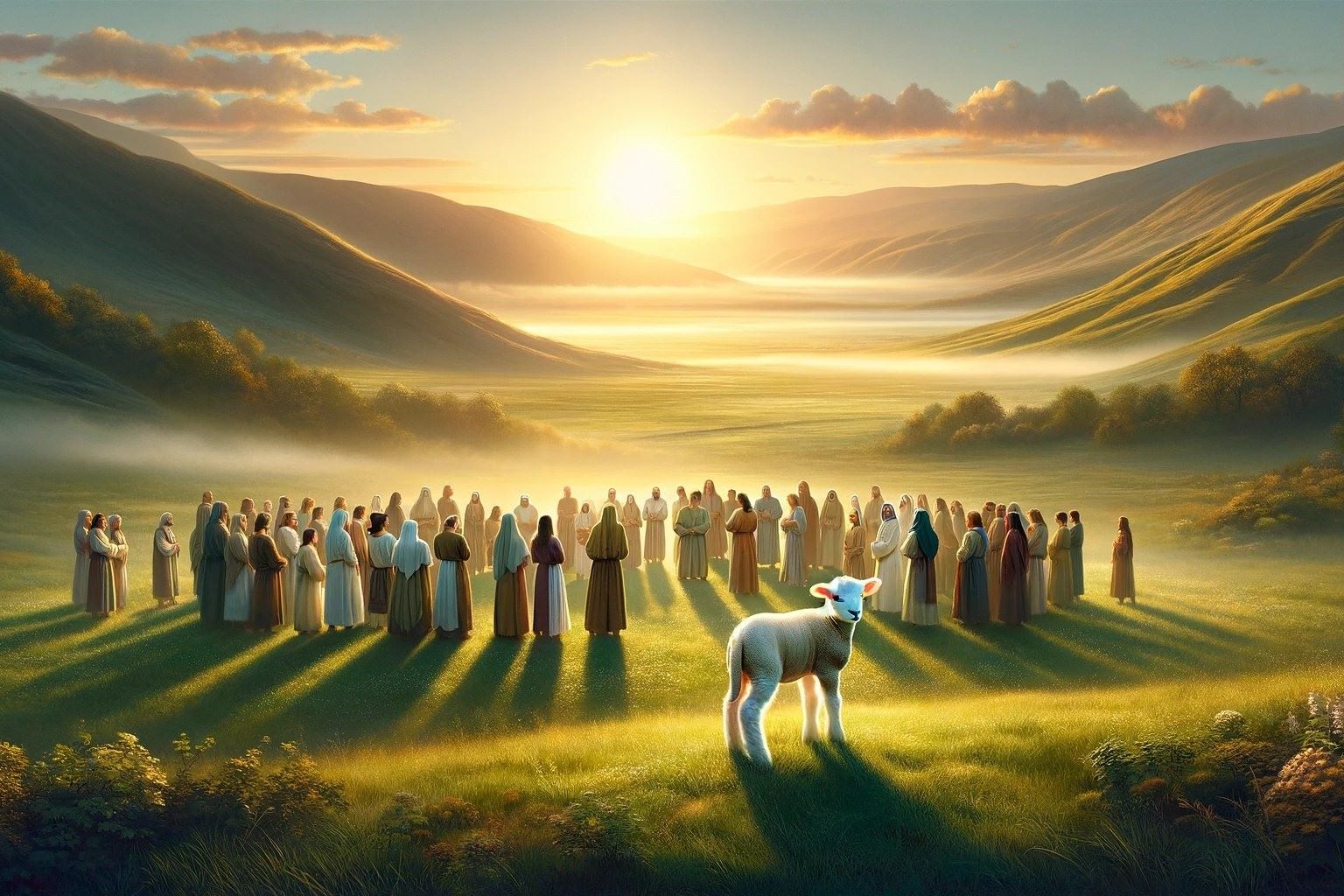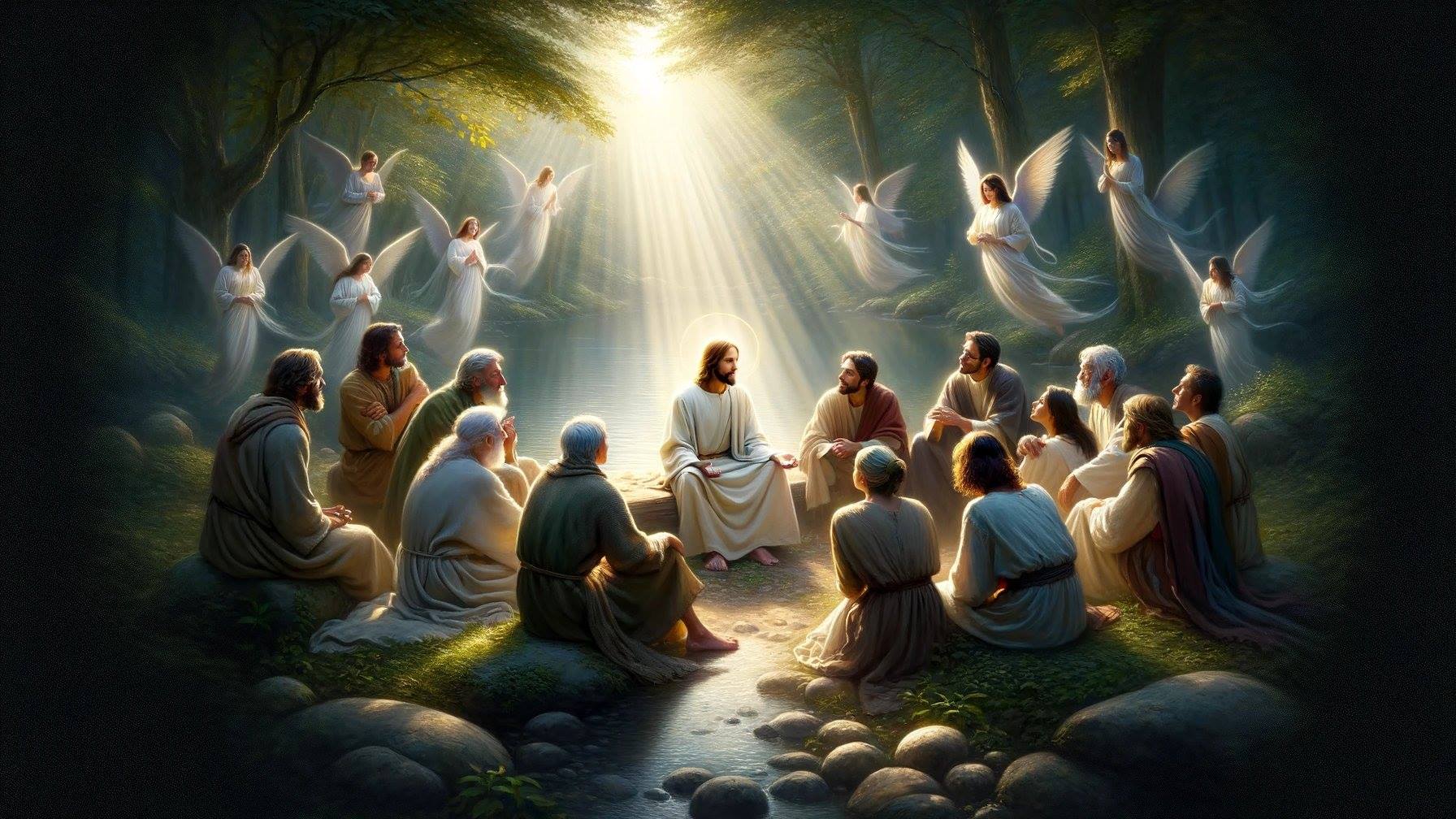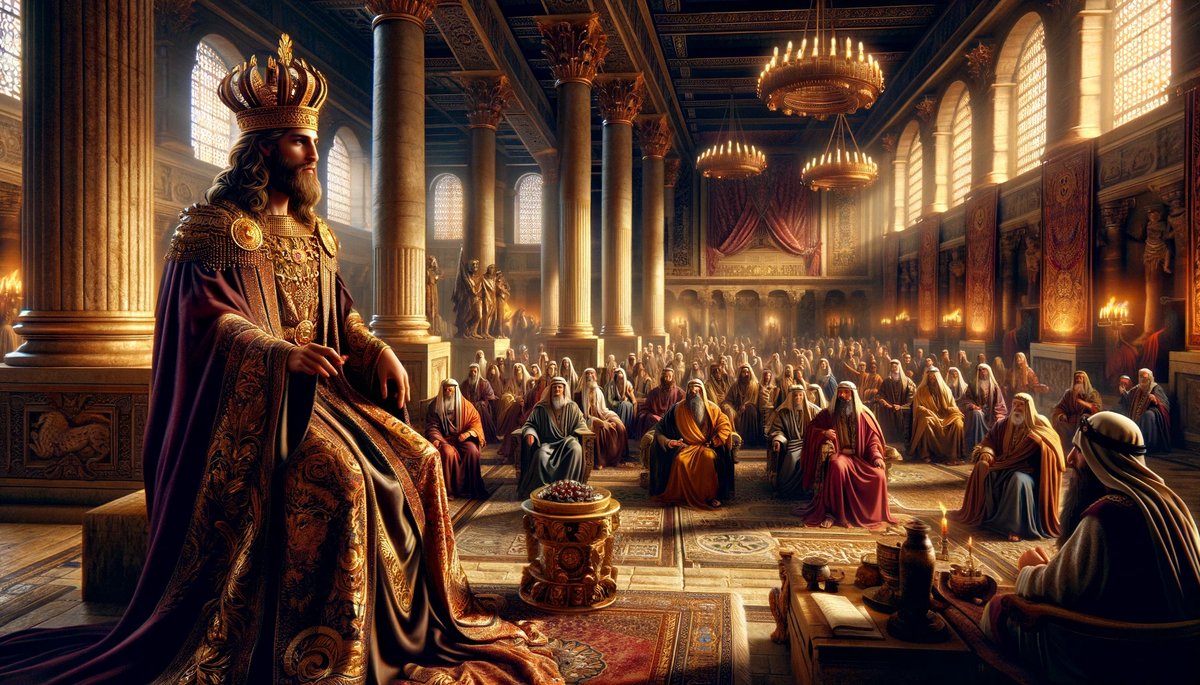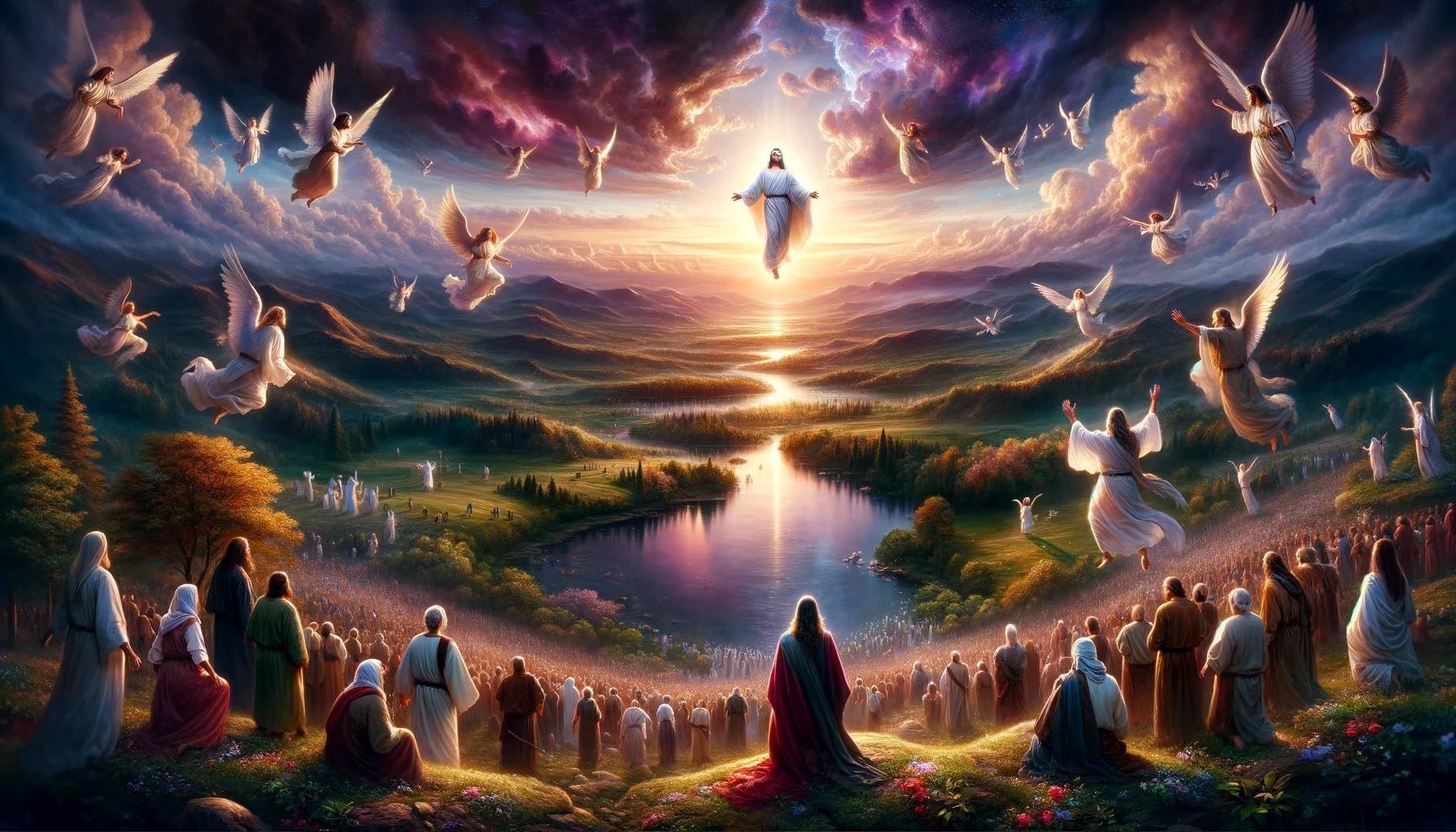Home>Christian Videos>Bible Stories>When Was Jesus Christ Created By God
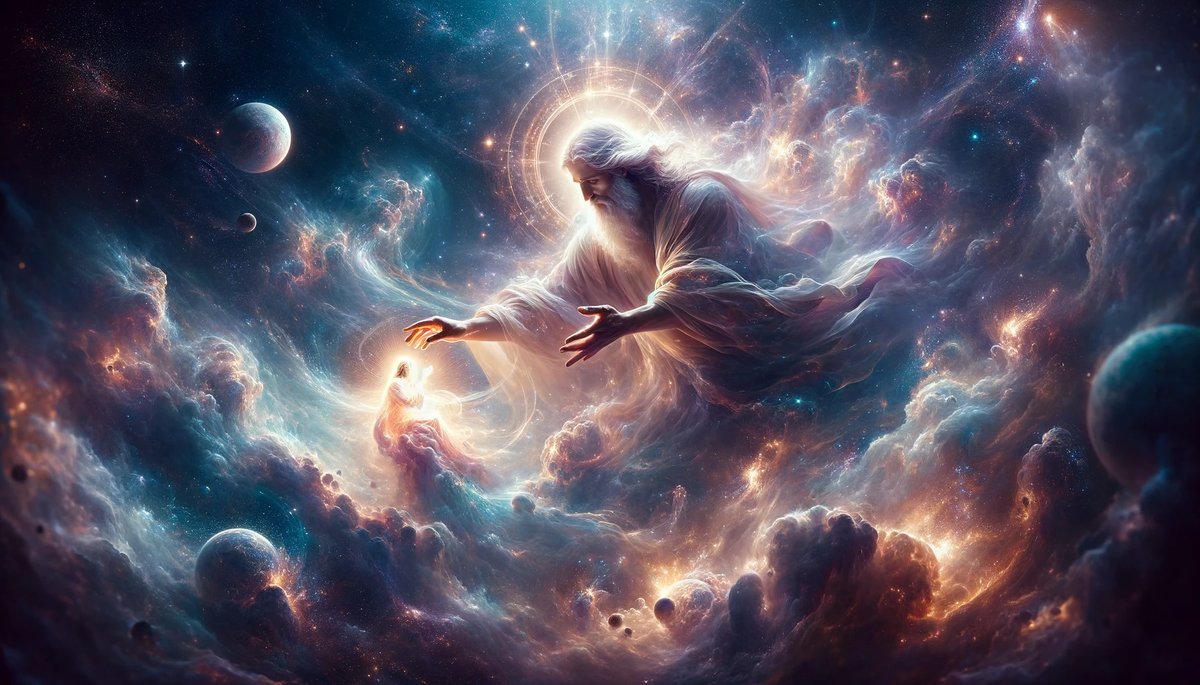

Bible Stories
When Was Jesus Christ Created By God
Published: March 2, 2024
Jason DeRose, Managing Editor at Christian.net, uses his expertise in religion and journalism to deepen understanding of faith's societal impacts. His editorial leadership, coupled with a strong academic background, enriches the platform’s diverse content, earning him recognition in both journalism and religious circles.
Discover the truth about the creation of Jesus Christ by God in the Bible. Explore the biblical perspective on this intriguing topic. Gain insights into the story of Jesus and God's divine plan.
(Many of the links in this article redirect to a specific reviewed product. Your purchase of these products through affiliate links helps to generate commission for Christian.net, at no extra cost. Learn more)
Table of Contents
Introduction
When was Jesus Christ created by God? This question has been a topic of debate and discussion among theologians and scholars for centuries. The concept of the creation of Jesus Christ is a complex and nuanced issue within Christian theology. In this article, we will explore the biblical perspective on the creation of Jesus Christ, the early church's understanding of this concept, and the ongoing debate over this topic in Christian theology. Understanding the origins of Jesus Christ is essential to comprehending the core beliefs of Christianity and the nature of the relationship between God the Father and Jesus Christ.
The Biblical Perspective on the Creation of Jesus Christ
The Bible presents Jesus Christ as the Son of God, existing from eternity past. The Gospel of John, for instance, describes Jesus as the Word who was with God in the beginning and was God. This indicates that Jesus is not a created being but has existed alongside God the Father from the very beginning. The book of Colossians also emphasizes the pre-existence of Jesus, stating that all things were created through Him and for Him. This suggests that Jesus was not created at a specific point in time but has always been an integral part of the divine plan for creation.
Furthermore, the Gospel of Matthew and Luke narrate the miraculous conception and birth of Jesus through the Virgin Mary, emphasizing his unique and divine nature. This divine origin of Jesus, as depicted in the Bible, reinforces the belief that he is not a created being but rather the eternal Son of God. The biblical perspective on the creation of Jesus Christ, therefore, affirms his pre-existence and divine nature, distinct from the concept of being created at a particular moment in time.
Key Points:
- The Gospel of John portrays Jesus as the eternal Word who was with God from the beginning.
- The book of Colossians emphasizes that all things were created through Jesus, indicating his pre-existence.
- The miraculous conception and birth of Jesus underscore his unique and divine nature, as depicted in the Gospels of Matthew and Luke.
The Early Church's Understanding of the Creation of Jesus Christ
In the early centuries of Christianity, the understanding of the creation of Jesus Christ was a central focus of theological discussions and debates. The early church fathers grappled with articulating the nature of Jesus Christ in relation to God the Father. One of the key figures in shaping the early church's understanding of Jesus Christ was Athanasius, who vigorously defended the belief in the eternal divinity of Jesus. His writings and teachings emphasized that Jesus, as the Son of God, was not a created being but was begotten of the Father, sharing the same divine essence.
Additionally, the Nicene Creed, formulated in the 4th century, played a significant role in shaping the early church's understanding of Jesus Christ's creation. The creed affirmed that Jesus was "begotten, not made," asserting his eternal relationship with the Father and rejecting the notion that he was a created being. This declaration solidified the belief in the pre-existence and divine nature of Jesus Christ within the early Christian community.
Furthermore, the early church councils, such as the Council of Chalcedon in 451 AD, addressed the theological complexities surrounding the nature of Jesus Christ. The council's formulation of the Chalcedonian Definition affirmed that Jesus Christ is "truly God and truly man," emphasizing the inseparable union of his divine and human natures. This understanding reinforced the early church's conviction that Jesus, as the Son of God, transcended the limitations of being a created being and instead existed eternally as part of the divine Trinity.
The early church's understanding of the creation of Jesus Christ, therefore, centered on affirming his eternal divinity and pre-existence, while also acknowledging his incarnation as a human being. These foundational beliefs continue to shape Christian theology and doctrine, highlighting the enduring significance of the early church's contributions to the understanding of Jesus Christ's nature and existence.
Key Points:
- Athanasius emphasized the eternal divinity of Jesus Christ, rejecting the notion of his creation.
- The Nicene Creed affirmed the eternal relationship of Jesus with the Father, solidifying the belief in his pre-existence.
- The Council of Chalcedon emphasized the inseparable union of Jesus' divine and human natures, shaping the early church's understanding of his existence.
The Debate Over the Creation of Jesus Christ in Christian Theology
The debate over the creation of Jesus Christ has been a contentious issue in Christian theology, giving rise to diverse perspectives and interpretations. One of the focal points of this debate revolves around the relationship between Jesus Christ and God the Father, particularly concerning the concept of Jesus' pre-existence. Some theological traditions and scholars assert that Jesus was created by God at a specific point in time, thereby challenging the traditional understanding of his eternal existence. This perspective often stems from interpretations of certain biblical passages and theological frameworks that emphasize Jesus' subordinate role to the Father.
On the other hand, proponents of the belief in the eternal pre-existence of Jesus Christ argue that he is co-eternal with God the Father and has always existed as an integral part of the divine Trinity. This perspective aligns with the traditional teachings of the early church and emphasizes the inseparable relationship between Jesus and the Father. The debate also extends to the nature of Jesus' divine essence and his role in the act of creation, with differing theological interpretations shaping the discourse on his eternal existence.
Furthermore, the debate over the creation of Jesus Christ intersects with discussions on the doctrine of the Trinity, as it pertains to the relationship between the Father, the Son, and the Holy Spirit. The intricate dynamics of the Trinity and the nature of Jesus' divine identity contribute to the complexity of this theological debate. Different Christian denominations and theological traditions have approached this issue from various perspectives, leading to a rich tapestry of theological discourse and interpretation.
Moreover, the debate over the creation of Jesus Christ has implications for understanding the salvific work of Christ and the significance of his divine nature in the Christian faith. The theological perspectives on Jesus' pre-existence and eternal divinity shape fundamental beliefs about redemption, atonement, and the nature of God's revelation to humanity. As such, this debate holds profound implications for the core tenets of Christian theology and the understanding of Jesus Christ as the central figure of the Christian faith.
In contemporary Christian theology, the debate over the creation of Jesus Christ continues to stimulate scholarly inquiry and theological reflection. The diverse range of perspectives and interpretations underscores the complexity of this issue and its enduring significance within Christian thought. As theologians and scholars engage in dialogue and debate, the exploration of the creation of Jesus Christ remains a dynamic and evolving facet of Christian theology, shaping the understanding of the nature and identity of Jesus Christ within the Christian faith.
Key Points:
- The debate centers on the relationship between Jesus Christ and God the Father, particularly regarding Jesus' pre-existence.
- Perspectives range from the belief in Jesus' creation at a specific point in time to the assertion of his eternal pre-existence.
- The debate intersects with discussions on the doctrine of the Trinity and the nature of Jesus' divine identity.
- Implications for understanding the salvific work of Christ and the core tenets of Christian theology.
- The debate continues to stimulate scholarly inquiry and theological reflection in contemporary Christian theology.
Conclusion
The question of when Jesus Christ was created by God has been a subject of profound theological inquiry and debate throughout the history of Christianity. From the biblical perspective that emphasizes Jesus' eternal pre-existence to the early church's articulation of his divine nature and the ongoing debate in Christian theology, the understanding of Jesus Christ's creation remains a complex and multifaceted issue. The foundational beliefs about Jesus Christ's eternal divinity, as affirmed in the early church's teachings and the diverse theological perspectives on his pre-existence, continue to shape the core tenets of Christian faith and doctrine. The debate over the creation of Jesus Christ intersects with fundamental aspects of Christian theology, including the doctrine of the Trinity and the salvific work of Christ, underscoring its enduring significance within Christian thought. As theologians and scholars engage in dialogue and reflection, the exploration of the creation of Jesus Christ remains a dynamic and evolving facet of Christian theology, contributing to a deeper understanding of the nature and identity of Jesus Christ within the Christian faith.
